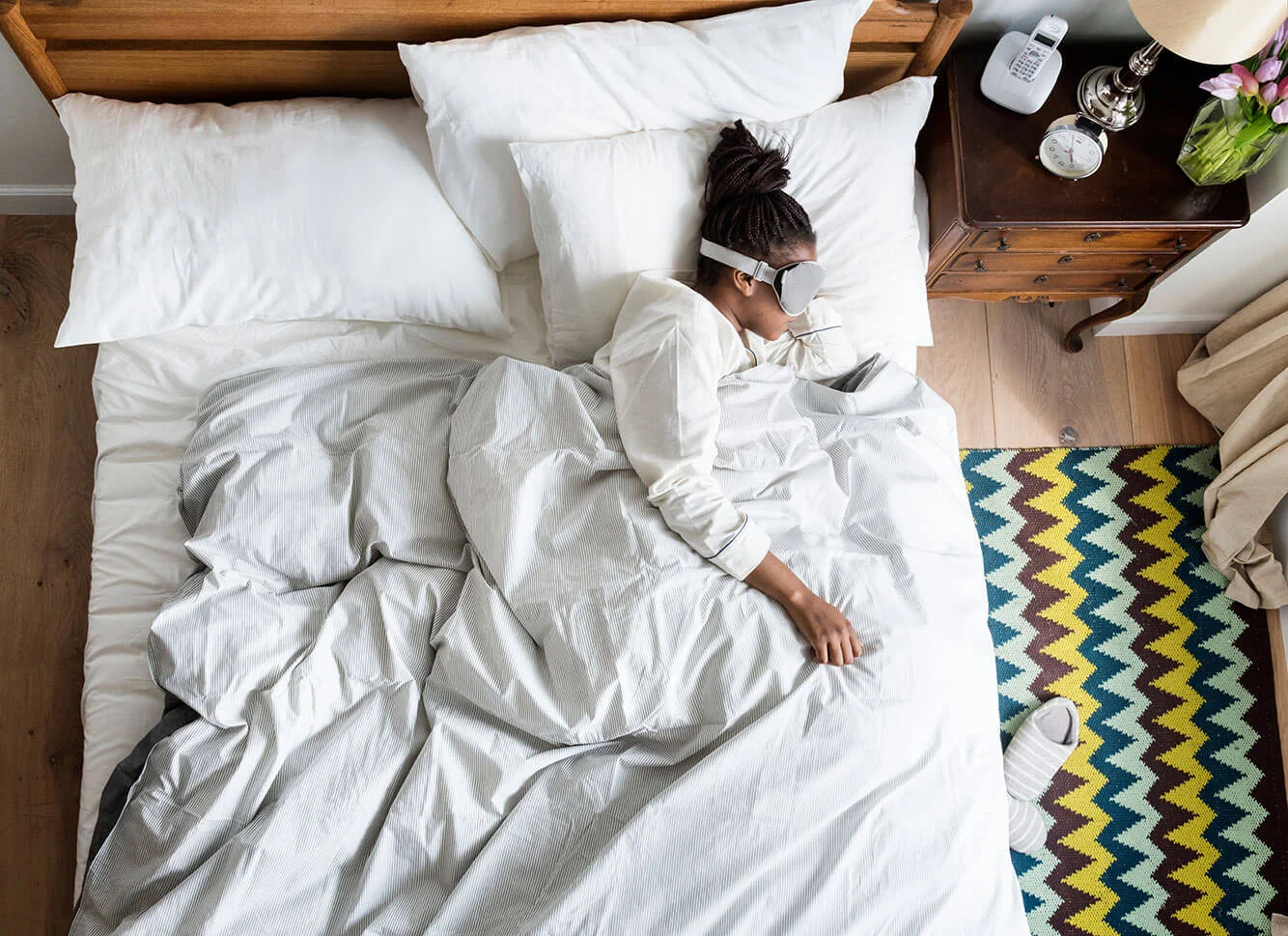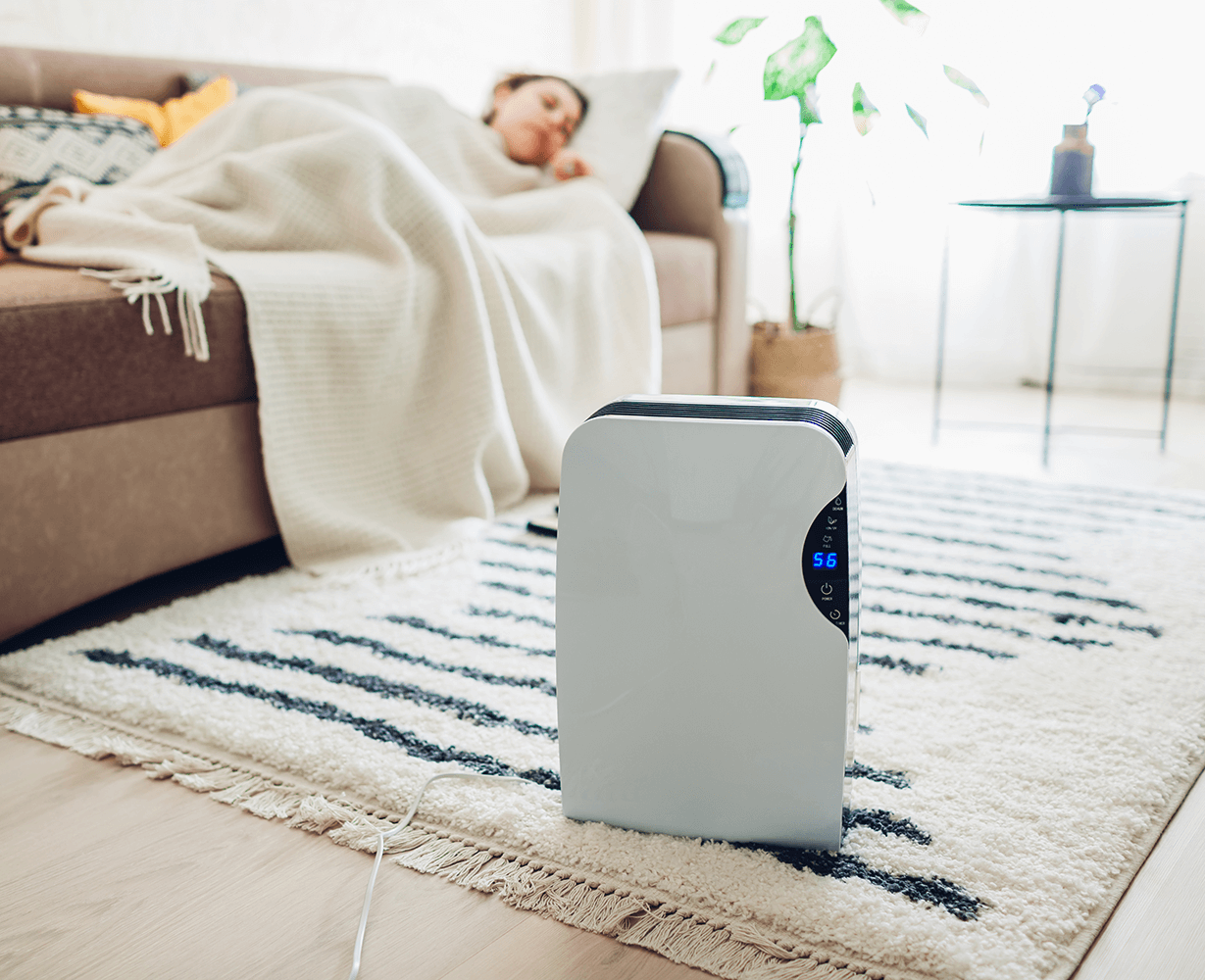Perform Your Best With The Right Amount Of Sleep
As any athlete will tell you, there is a lot that goes into making sure your body is able to handle the extreme type of physical activity. While training, exercise and eating right can all help athletes perform their best—one of the most important things that any athlete can do in order to get their bodies ready to perform is to get enough sleep.
Proper sleep is essential for recovery and performance, yet so many people (athletes and non-athletes alike) simply aren’t getting enough sleep each and every night. Many times, this is because these athletes don’t realize just how important sleep is to their performance. The more you know about how sleep impacts your body and your ability to recovery, the better.
Understanding what sleep deprivation can do to the body can be just the thing that athletes need in order to perform their best—and then recover their best as well. Here’s a little more about the vital role that sleep plays in athletes and their consistent journey to recovering following athletic performance.
Sleep Deprivation
Athletes and Sleep
Before you can really understand the direct impact that a lack of sleep can have on an athlete’s performance, it is important to have a better understanding of what sleep deprivation really is and how it impacts you.
The quality of sleep that you are able to get is very important when it comes to building athletic performance—it isn’t just the number of hours you lie in bed. REM sleep in particular is very important for athletes as it helps provide restorative energy to both the body and the brain.
How sleep improves performance
Sleep deprivation can be different for everyone, but it is typically classified simply as not getting at least 7-9 hours of sleep per night. There may be some adults who can rely on 7 or slightly less, but it is rare, as most adults need at least 7 hours of consistent sleep to function properly.
Sleep deprivation can present itself in several forms, but for many people it leads to mood swings, health issues, lower immune system, forgetfulness, health problems and even depression. For many athletes it leads to lack of focus, fatigue, reduced reaction times, less speed and accuracy, more injuries and a host of other issues that can seriously impact performance and recovery.
Understanding sleep and the way it impacts the body and mind is an essential step for any athlete looking to take their athletic performance to the next level.
Consequences of Reduced Sleep
Sleep and athletics
There are many people who assume that not getting enough sleep at night simply leads to tired mornings and the need for an extra coffee to get through the day. However, not getting enough sleep can do so much more to your body than to make you feel tired.
A lack of sleep can have a serious impact on your health, ability to recover and athletic performance. This is why it is so important for athletes to get enough sleep every night.
A standard 7-9 hours of sleep is always recommended, but there are some experts that state up to 10 hours of sleep per night may be necessary for athletes. These longer stretches of sleep are important because they allow you to get into the important REM stage of the sleep cycle. Otherwise, athletes may have to deal with serious sleep deprivation.
Here are some of the physical consequences of reduced sleep and what it can actually do to your body.
Injury Rates
Importance of sleep for athletes
Every athlete knows that nothing is as devastating as an injury. Whether it’s an injury that just comes with aches and pains after a performance, or a serious injury that can completely sideline your altogether—there is nothing worse than an injury.
According to one study from the University of California—young athletes are more likely to be injured that low sleep hours were the biggest injury predictor in high school athletes. There are a number of reasons why low sleep can lead to injuries:
It can cause athletes to have a slower reaction time, which can put them in a situation of a preventable injury (such as running into another player).
Some athletes struggle with reaction time and doing things like bracing for impact, which can make injuries more common.
Fatigue from lack of sleep can impact the immune system and make it more likely for players to fall victim to illness.
Athletes who want to do their best to avoid injury, should make sure that they are getting between 7-9 hours of sleep every night. In addition to helping them be in the right frame of mind to focus on injury, getting enough sleep also give the body a chance to recover. Shorter periods of sleep won’t give your body the opportunity to regenerate cells and start the recovery process.
This is essential to helping the body recover and repair after workouts and serious training sessions, which will help with soreness, pain and slow injuries that develop over time. As many athletes know, it is isn’t always one major injury that puts them on the sidelines—sometimes repeated aggravated illnesses and injuries are just as dire, and this can only be made worse by an overall lack of sleep.
Accuracy and Speed
Accuracy and Speed from sleep
Speed and accuracy are two of the most important skills that any athlete can possess. Speed of course is essential in virtually every sport whether it is quick springs or speed over a longer period for more endurance.
Accuracy of course can impact any sport ranging from tennis to baseball. However, while accuracy and speed are very important, and can be made better with consistent practice and training—they are also heavily impacted by sleep.
According to one research study performed at Stanford University, found that basketball players who slept as long as 10 hours per night over a period of 7 weeks had a significantly better free-throw and field goal extension and a faster timed sprint after their sleep extension.
Studies like this are one of the many that have studied the impact that more sleep can have on accuracy and speed in sports. This is because of the impact that sleep can have on the biochemical, cognitive and physiological systems in the body—with regular sleep significantly improving all of these areas.
Studies that look at accuracy and speed and can take measurable statistics to look at the impact of sleep are very important. This is because they not only highlight the negative impact that a lack of sleep can have for athletes, but the positive impact that more sleep can have as well.
Reaction Times
Reaction Times with better sleep
A quick reaction time can be the difference between the wining and losing play for any athlete, and it is often what separates the good players from the great players. Quick reaction times have a lot to do with physical ability, mental toughness and focus. However, they can be seriously impacted by sleep—more specifically a lack of sleep.
There was even a study from Harvard that compared the impact that sleep deprivation has on reaction times to intoxication from alcohol. These studies have found that sleep deprivation actually has a similar effect to reaction times as being drunk does.
Serious athletes aren’t showing up to their games drunk, and they shouldn’t show up to their game sleep deprived either.
Decision Making
Decision Making with better sleep
There is a lot of decision making involved in sports, and in order to be a great athlete, you need to be able to make quick, game-time decisions in an instant.
And make sure that you are making the right decision. There have been several studies comparing sleep loss and decision making behaviors, noting that people with sleep deprivation are more likely to take risks and not think through their decisions as completely.
More specific studies on decision making, fatigue and sports looked at Major League Baseball players, finding that fatigue had a negative impact on their decision-making abilities in the game.
This should come as no surprise to sleep experts who have found that sleep loss actually directly impacts the frontal lobe of the brain—which is used for decision making abilities.
Length of Careers
Length of Careers with better sleep
Serious athletes may be unnerved to find that sleep deprivation can actually end up shortening the length of their careers. Studies on professional athletes and their careers found that sleep can seriously impact how long they are able to stay in the game.
For world-famous athletes with long careers like Tom Brady, sleep has been a public and instrumental part of their edge. Players who are able to avoid sleep deprivation can get a significant edge on the competition when it comes to maintaining a long career.
However, a majority of professional athletes, don’t put as much effort into getting enough sleep every night, mostly sighting issues with training times and travel—which is likely why those who do get enough sleep are so much more successful. Sleep deprivation can take a serious toll on athletic performance over the long-term and has a more notable impact on the body than mental fatigue.
How Much Sleep Are Athletes Getting?
How Much Sleep Are Athletes Getting?
So, it is pretty obvious that sleep is important for athletes—but just how much sleep are most athletes really getting? Unfortunately, most athletes aren’t even getting the recommended 7-9 hours of sleep per night. Athletes, both amateur and professional, tend to have busier schedules with training, practice, games and travel, which can make sleep difficult to come by.
However, athletes need sleep, in fact they technically need even more sleep than the average non-athlete. Just look at how athletes eat. They typically need to consume more calories than non-athletes, because they are burning so many calories. Sleep is the same way. Since they are exerting so much more energy during the day, they need more sleep at night in order to recover.
Solutions To Sleep Deprivation
Solutions To Sleep Deprivation
Understanding the importance of sleep on athletic performance is important, but it doesn’t mean that most athletes still aren’t dealing with sleep deprivation in one form or another. This is why it is just as important to understand some applicable, realistic solutions to sleep deprivation.
The first is to remember that most people overestimate how much sleep they are actually getting. Pay attention to the amount of actual sleep that you get every night, not just how long you lie in bed. You should be aiming for 7-9 hours.
Besides actually forcing yourself to go to sleep, there are other things you can do to help yourself avoid sleep deprivation as well. This is especially true if you are struggling to fall asleep at night in the first place. Here are some easy ways athletes of all types can avoid sleep deprivation.
Set a routine sleep schedule. It should be as regular as your practice schedule. Go to sleep at the same time every night and wake up at the same time every morning. If you are someone who naps—make sure you nap at the same time every day as well.
Avoid screen time in the evening—this means avoiding computers, tablets and phones right before bed. The blue light in these products can actually impact your sleep cycle and make it difficult for you to fall asleep at night.
Avoid caffeine and other stimulants in the evening—they can make it hard to fall asleep.
Be cautious of the impact that travel has on sleep. Athletes who are traveling for sports or competitions should try to give themselves a few days ahead of time in their new time zone or destination. It helps their bodies get used to a different sleep schedule.
Reduce alcohol consumption. Just like caffeine, alcohol can impact any person’s ability to fall asleep, and stay asleep. But more specifically, it can impact the quality of sleep you are getting as well.
Don’t take over-the-counter sleep medication. Unless you have been specifically prescribed one by a doctor, these sleep aids can actually do more harm than good when it comes to getting quality sleep at night
Tips and tricks like this, along with an understanding of what sleep deprivation can actually do to your and your performance can go a long way in helping you get the quality sleep that you deserve.
Every Athlete Should Be Aware Of The Importance Of Sleep
Every athlete, whether no matter how old or young, amateur or professional—should be aware of the importance of sleep on their athletic performance, safety and overall wellbeing.
While being an athlete has so many great physical, mental and social benefits, it can also be very hard on the body. The more you know about the importance of sleep and what it can mean for you as an athlete, the better. Getting quality sleep and avoiding sleep deprivation can be any athletes’ key to preventing injury, improving their performance and enjoying a better career on and off the field.
Jessica Lauren is Founder, contributing Author and Owner of Citrus Sleep. Citrus Sleep is an online publication that highlights brands, sleep products, women’s fashion, subscription services and ideas creating positive social change and promoting a healthy lifestyle. After spending nearly a decade working in PR and marketing for several brands and startups, Jessica knows what truly drives conversions, sold-out launches and guest posts.
Follow Jessica at @jessicalaurencs | Jessica Lauren






















